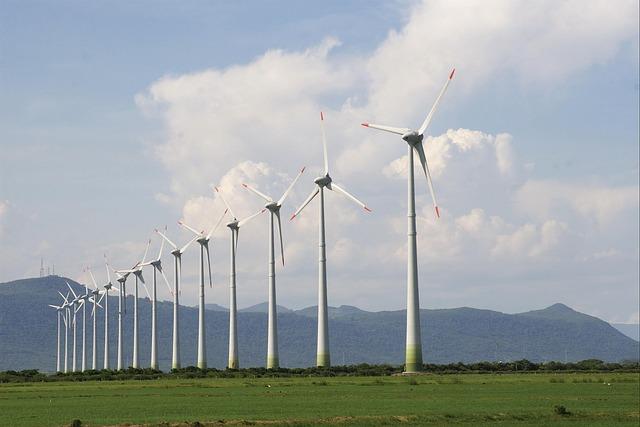PepsiCo is advancing its commitment to sustainable agriculture with the launch of a pioneering farm in Brazil dedicated to regenerative farming practices. As the global food industry increasingly prioritizes environmental responsibility, this initiative aims to transform supply chains by promoting soil health, biodiversity, and carbon capture. The Brazil farm represents a critical step in PepsiCo’s broader strategy to integrate regenerative agriculture across its sourcing operations, signaling a shift toward more resilient and eco-friendly food production systems.
PepsiCo Advances Regenerative Agriculture in Brazil to Support Sustainable Supply Chains
PepsiCo’s agricultural initiative in Brazil is setting new benchmarks in sustainable farming practices by fostering regenerative agriculture techniques. The company’s commitment goes beyond merely reducing environmental impact-it actively restores soil health, improves biodiversity, and enhances water efficiency on its farms. By partnering with local farmers and leveraging innovative technologies, PepsiCo aims to cultivate crops in a way that supports long-term ecosystem resilience while securing supply chains against climate risks.
Key elements of this program include:
- Crop diversification to prevent soil degradation
- Use of cover crops that naturally enrich the soil
- Reduced reliance on chemical fertilizers and pesticides
- Advanced water management systems tailored for local conditions
| Impact Area | Benefit | Target 2025 |
|---|---|---|
| Soil Health | Increase organic matter by 30% | +30% |
| Biodiversity | Enhance local flora and fauna presence | 10% growth |
| Water Use | Reduce consumption by smart irrigation | -25% |
Farm-Level Innovations Drive Environmental and Economic Benefits for Local Communities
PepsiCo’s Brazil farm is leading a paradigm shift by embedding regenerative agriculture techniques that simultaneously contribute to sustainability and bolster local economies. By integrating cover cropping, minimal tillage, and organic soil amendments, the farm not only enhances biodiversity but also improves soil health, leading to increased crop resilience and yield. These innovations have significantly reduced water usage and carbon emissions, demonstrating measurable environmental benefits that set new benchmarks for agribusinesses worldwide.
Local communities are feeling the positive impact through:
- Creation of skilled employment opportunities rooted in sustainable farming practices
- Higher income stability due to improved crop quality and market access
- Strengthened food security via diversified and resilient agricultural systems
| Innovation | Environmental Impact | Economic Outcome | |||
|---|---|---|---|---|---|
| No-Till Farming | Preserves soil structure, reduces erosion | Lowers operational costs by 20% | |||
| Cover Cropping | Increases soil organic matter | Boosts yield consistency | |||
| Agroforestry Integration | Enhances carbon sequestration |
| Innovation |
Environmental Impact |
Economic Outcome |
|
| No-Till Farming | Preserves soil structure, reduces erosion | Lowers operational costs by 20% | |||
| Cover Cropping | Increases soil organic matter | Boosts yield consistency | |||
| Agroforestry Integration | Enhances carbon sequestration | Diversifies income streams through timber and non-timber products |
If you’d like, I can help you further improve the content, style the table for readability, or add more innovations and outcomes. Just let me know!
Experts Recommend Scaling Regenerative Practices Across Global Food Networks
Leading agronomists and sustainability advocates emphasize the urgent need to amplify regenerative agricultural methods within global food systems. Drawing on successful models like PepsiCo’s Brazil farm initiative, experts highlight that these practices not only improve soil health and biodiversity but also enhance the resilience of supply chains against climate disruptions. Such approaches, rooted in minimizing chemical inputs and promoting diverse crop rotations, are increasingly recognized as a strategic imperative for long-term food security.
Concrete benefits from these scaling efforts include improved water retention, carbon sequestration, and socioeconomic uplift for farming communities. Industry leaders recommend adopting tailored regenerative protocols across varied geographies while leveraging technology to monitor progress and maximize impact. The following table summarizes key regenerative practice benefits observed in pilot projects:
| Practice | Primary Benefit | Impact Level |
|---|---|---|
| Cover Cropping | Soil Moisture Retention | High |
| No-Till Farming | Reduced Soil Erosion | Moderate |
| Agroforestry | Biodiversity Enhancement | High |
- Integration with digital monitoring tools enhances transparency and farmers’ adaptive capacity.
- Collabor It looks like your content was cut off at the last list item beginning with “Collabor”. Would you like me to help you complete that list? Also, if you want, I can assist in refining or expanding the text and table you’ve shared. Just let me know how you’d like to proceed!
The Way Forward
As PepsiCo’s Brazil farm sets a benchmark in regenerative agriculture, it underscores a growing commitment within the food industry to sustainable and resilient supply chains. By investing in practices that restore soil health and support local ecosystems, the company not only advances environmental goals but also reinforces the viability of its long-term operations. This initiative highlights how major players in the sector are beginning to align business strategies with global sustainability imperatives, paving the way for a more responsible and regenerative future in food production.




